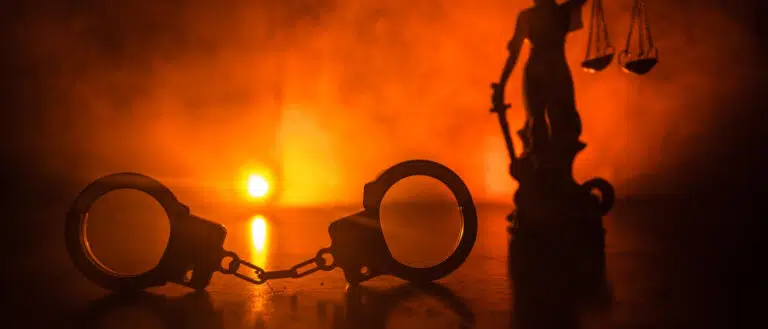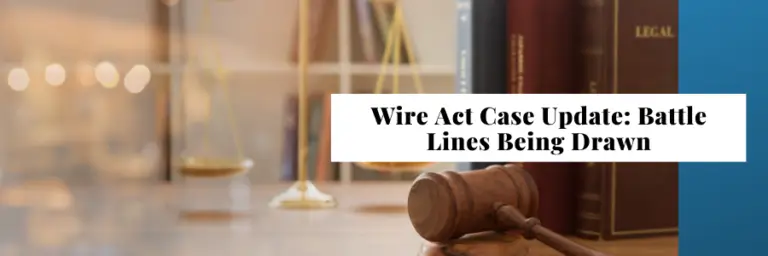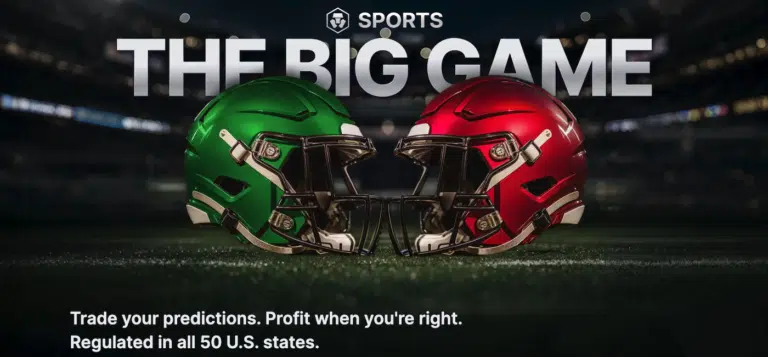Challenges to the Latest Wire Act Opinion Incoming

The Department of Justice decision to reverse its 2011 interpretation of the Federal Wire Act has, not surprisingly, proven quite unpopular among key lawmakers in states with legal online gambling, sports betting and lotteries.
The DOJ decision last month reversed a prior decision issued in 2011 in which the DOJ clarified that in its opinion, the Wire Act only applies to sports betting. The 2011 decision made it possible for states such as New Jersey to legalize online gambling and states such as Michigan to legalize online lotteries.
After the Supreme Court struck down a different federal law criminalizing sports betting, numerous states moved to legalize online sports betting. New Jersey, Pennsylvania, West Virginia and Washington DC have all passed laws to legalize online wagering while additional states are considering doing the same thing. This was all made possible in the beginning thanks to the 2011 Wire Act decision.
Last month, the DOJ put a damper on things by issuing yet another memo – this time reversing its 2011 Wire Act opinion. Now, the DOJ once again interprets the Wire Act as applying to all forms of gambling. This latest decision has put into jeopardy millions of dollars’ worth of new revenue streams flowing into state coffers across the country, plus no small number of jobs.
Lawyers, politicians, and industry stakeholders took some time to digest the implications of the DOJ memo, but now we’re seeing the beginnings of a pushback against the decision by those most affected by it.
Former State Senator Ray Lesniak Vows to Fight the Decision
Former NJ Senator Ray Lesniak came out about a week after the latest DOJ memo and vowed to fight it by all means necessary. Although the senator is now retired, Lesniak remains a strong ally of sports betting fans as he played an instrumental role in restoring states’ rights to regulate sports betting as they see fit.
Ray Lesniak and former NJ Governor Chris Christie led the charge in challenging the Professional and Amateur Sports Protection Act (PASPA) by pushing legislation in New Jersey to legalize sports betting after the 2011 DOJ opinion.
It is largely thanks to Lesniak and Christie’s tireless efforts in New Jersey that the Supreme Court took up the case, declared PASPA unconstitutional, and freed other states to follow suit.
Lesniak promised last month to enter the fray once again and challenge the DOJ over the sports betting issue. He will reportedly work pro-bono to see that his legacy remains intact even after leaving office.
Here’s how he put it last month:
“It looks like I will have to go to court again to straighten out the Justice Department’s overreaching on states’ rights, just as I did with sports betting. This opinion is outrageous. If Congress won’t fix it, I will through the judicial process.”
New Jersey and Pennsylvania Attorneys General Fire Back at DOJ
Earlier today, the Attorney’s General of New Jersey and Pennsylvania sent a letter to the DOJ expressing their “strong objections” to the recent decision.
The letter, addressed to US Attorney General Matthew Whitaker and Deputy Attorney General Rod Rosenstein, asks “that DOJ withdraw its opinion altogether or assure us that DOJ will not bring any enforcement action against companies and individuals engaged in online gaming in our states – where it is appropriate under state law.”
The letter further contends that there is “no good reason for DOJ’s sudden reversal” and notes that the decision “runs contrary to the plain language of the Wire Act.”
NJ AG Submits FOIA Request Related to Sheldon Adelson Influence
New Jersey Attorney General Gurbir Grewal has also filed a Freedom of Information Act (FOIA) request seeking any information “relating to outside groups’ lobbying efforts urging the Department of Justice to reconsider this position.”
The FOIA request explains that the DOJ has suddenly reversed its position on the Wire Act, potentially upsetting entire industries, despite being unable to “point to any intervening facts or information to justify such an about-face.”
Additionally, the FOIA request notes that rather than new information coming to light, widespread press reports indicate that outside lobbying groups have commenced a lobbying campaign seeking to pressure the DOJ to change its position.
With that in mind, Attorney General Grewal seeks communications between the DOJ and “any non-governmental actors or organizations, including but not limited to the Coalition to Stop Internet Gambling, Las Vegas Sands, the Lincoln Group, Sheldon Adelson, Blanche Lincoln, Charles Cooper, and Darryl Nirenberg” along with organizations and individuals in the Executive Office of the President related to the Wire Act decision.
It will be very interesting to see if the FOIA request returns any hits for Sheldon Adelson, who once promised to spend “whatever it takes” to stop online gambling. Adelson has campaigned for years against online gambling on moral grounds despite himself amassing a sizable fortune on the backs of visitors to his land-based properties.







